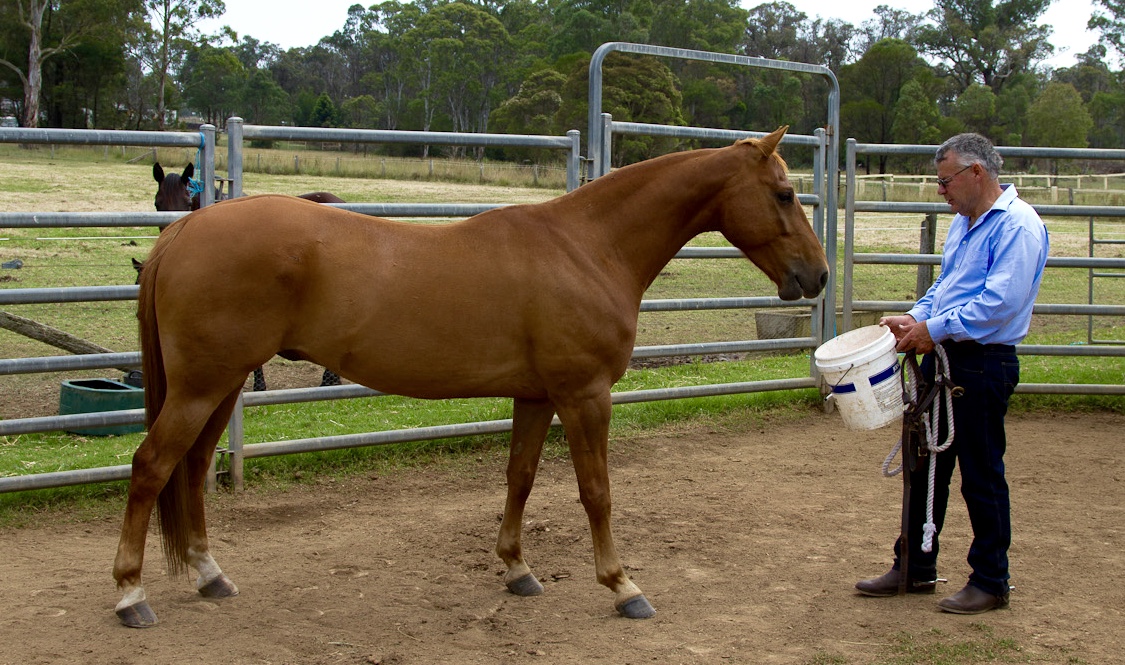The biggest problem to overcome in horse training is human behaviour.
Humans come up with all sorts of theories and methods, then try to make every horse fit their set lessons.
Many people cling to traditional theories and set methods, no matter how their horses react.
Instead of trying to make horses adapt to theories and methods, we must find what works best for every horse.
We must be logical, impartial, and above all, we must remain neutral in every situation.
Every horse can learn many things.
He can learn to go and stop, to walk, trot and canter when he’s asked, to work cattle, to spin and turn and to perform advanced dressage movements.
Your horse can also learn to run over the top of you, bite you, kick you and buck you off.
You must remember that your horse doesn’t do anything because he’s bad, naughty, spiteful or disrespectful.
Undesirable horse behaviour starts as a response to something that your horse is frightened by or doesn’t understand.
When a horse finds relief by using these behaviours, they become reinforced in his mind.
And so, biting, kicking and bucking become learned behaviours.
When your horse has just run over the top of you, bitten you, kicked you or bucked you off, it’s very difficult to remain impartial and neutral.
It’s very difficult to see things from the horse’s point of view.
It’s really, really easy to blame your horse.
It’s really, really hard to blame yourself.
When undesirable horse behaviour occurs, the natural human reaction is retaliation – dominate the horse, show him who’s boss, teach the horse ‘respect’.
You must overcome this natural human reaction.
When things go wrong, you must stay impartial and neutral.
There’s no point getting upset or thinking the horse needs punishment.
There’s no point making excuses by saying the horse is mad, highly strung or it’s in his breed or he has a special personality.
It’s pointless to blame your horse if he doesn’t respond as you expect, or as your theory predicts.
Instead, you must ask yourself what you’ve done wrong and what you can do to improve the situation.
I’ve trained thousands of horses and in the process I’ve been bitten, kicked, bucked off, run over and a hundred other things that I can’t even remember.
I know that the hardest thing to do under these circumstances is to stay cool and impartial and not blame the horse.
In the heat of the moment it’s very difficult to say:
‘What have I done to make this horse buck?
What have I done to make this horse kick me?
What have I done to make this horse run over the top of me?’
Until you can keep calm and ask yourself these questions when things go wrong, you won’t learn to understand horses.
You must always blame yourself.
While ever you blame your horse and look for excuses, you won’t improve.
Understanding horse behaviour is easy when you learn to control your emotions and blame yourself when things go wrong.

